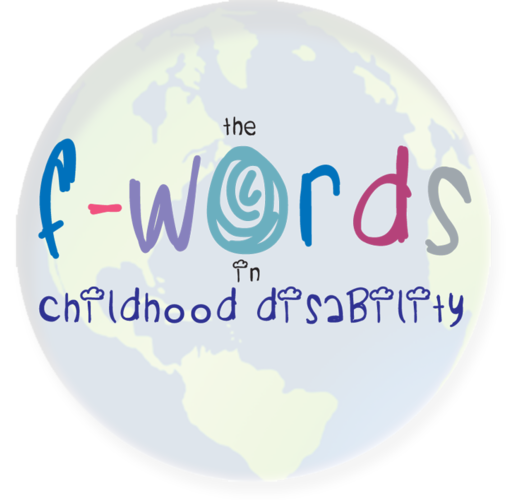Welcome to the October edition of
CanChild Today! In this edition, we are thrilled to share voices from our youth community with a brand new video based on the "
F-words" in disability framework. We are also proud to release a new plain language resource on research in genomics and cerebral palsy, and celebrate news and accomplishments from our CanChild peers around the globe!
Please feel free to share CanChild resources and this newsletter with family, friends and colleagues. They can subscribe to the
CanChild Today! Newsletter for free by registering
here
. Our past issues are archived on the CanChild website and can be accessed
here!
|
|
New CP-NET Video!
"These six F-words won't fill up your swear jar: What do the F-words mean to youth with impairments?"
What do the "F-words" - Function, Family, Fitness, Fun, Friends and Future - mean to young people with CP and other disabilities?
CP-NET is proud to present a brand new video based on the "F-words" concept, released on October 6 in celebration of World CP Day. "These six F-words won't fill up your swear jar: What do the F-words mean to youth with impairments?" has already been viewed over 4000 times on Facebook!
Share this video and help us continue to spread these fresh ideas one 'f-word' at a time!
This video was created in close partnership with Ontario youth with disabilities, with funding from the Ontario Brain Institute.
How did we do? Please consider taking a few moments to share your thoughts about this video.
|
|
Vote for "These six F-words won't fill up your swear jar: What do the F-words mean to youth with impairments" in the
CIHR Institute of Human Development, Child and Youth Health (IHDCYH) "Video Talks" Competition!
|
|
 |
We want your feedback!

The F-words in Childhood Disability Knowledge Hub officially launched in July 2017. The purpose of the Knowledge Hub
is to have one place where people can go to learn about the F-words (Function, Family, Fitness, Fun, Friends, and Future), and share ideas and strategies for moving the F-words into practice. While some of the tools and items on the Knowledge Hub were created by our research team, many of the materials are being generously shared by stakeholders from around the world.
In order to ensure that the Knowledge Hub is meeting the needs of stakeholders, we are conducting a pilot evaluation. After exploring the Knowledge Hub, we hope you will share your feedback with us by completing a brief online anonymous survey.
We would like to thank you in advance for your time. Your opinion greatly matters us, as we strive to create tools and resources that will be useful and meaningful for families and service providers.
|
 |
New Resource!
"In Brief: Genomic Copy Number Variation in Cerebral Palsy"
|
Scientists have known for many years that changes in genes can result in disorders that affect the muscles as well as the nervous system, and have identified many genes involved in neurodevelopmental and neuromuscular disorders. This "In Brief" describes a CP-NET study that investigates whether changes in genes could also have effects that result in cerebral palsy (CP).
Read now. |
|
|
Life Course Health Development of Individuals with Cerebral Palsy:
An LCRN Webinar featuring Briano Di Rezze, Matthew Freeman, Robert Palisano, and Debra Stewart
Wednesday, December 6, 2017
12:00pm-1:00pm EDT
In this webinar, researchers from CanChild will share their findings from a study on lifecourse health development of individuals with cerebral palsy to promote developmental capacities for future roles and healthy adult living beginning in childhood.
Register now. |
|

|
Peter Rosenbaum was honoured with the Carmel Award of Merit from the Canadian Friends of Haifa University in Israel, in recognition of his lifetime achievements in childhood disability research. The award was presented during the Mount Carmel Dinner (Fairmont Royal York, Toronto) on October 22. |
|
Recent Publications by CanChild Members
|
Communities of practice (CoPs) are groups of people who share a common interest for something they do and learn how to do it better through regular interaction. CoPs have demonstrated value as knowledge translation (KT) activities, but not enough is known about how they impact physical therapists' (PT) self-perceived practice. This study aimed to evaluate the impact of a CoP on a PT's self-perceived practice, while exploring factors that influence changes in self-perceived knowledge, skills and practice related to developmental coordination disorder (DCD). Authors:
Camden C,
Rivard LM, Hurtubise K, Héguy L, Berbari J. Phys Ther. 2017 Jul 1;97(7):746-755. doi: 10.1093/ptj/pzx041.
The average age for diagnosis of CP is currently between age 12 and 24 months. However, a child's brain is most likely to respond to interventions in the first few months of life. The objective of this systematic review of the literature is to identify the most accurate evaluations for diagnosing CP early, and to summarize best available evidence for early interventions. The study finds that a diagnosis of CP or high risk for CP can be made accurately before 6 months corrected age. Early detection, followed by early intervention, should be the standard of care to optimize outcomes, prevent complications, and improve parent and caregiver well-being.
Authors:
Novak I, Morgan C, Adde L, et al. JAMA Pediatr. 2017 Sep 1;171(9):897-907. doi: 10.1001/jamapediatrics.2017.1689.
|
 |
Canadian Anti-Spam Legislation
You are a member of the CanChild Today electronic newsletter generated by CanChild at McMaster University. If you believe that you should not be a recipient, you may withdraw your consent to receive these messages at any time, in accordance with Canadian Anti-Spam Legislation (CASL) and subject to McMaster University policy, by contacting the sender of this message, or by clicking on the 'SafeUnsubscribe' link at the bottom of this newsletter.
|
|
|
|
|